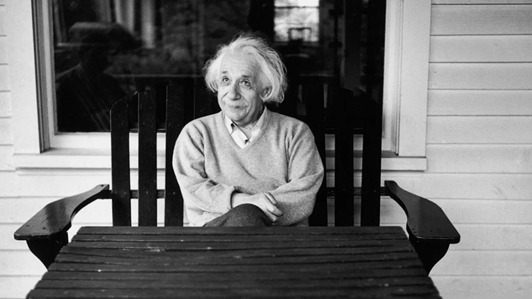The dilation of time through space can be explained thanks to the theory of relativity and the force of gravity. The theory of relativity is explained by Alberth Einstein which is the following:
Theory of relativity: This theory indicates that time is an element that cannot be separated from the three spatial dimensions existing in our reality. It is also famous for its prediction of quite strange but real phenomena, such as the slower aging of astronauts compared to people living on Earth and the change in the shape of objects at high speeds. Based on this, it is explained that time depends directly on the state of motion possessed by the observer.

The force of gravity: The theory of general relativity states that gravity is not a force (Newton), but the curvature of space-time. Weehler summarized this fundamental thesis in the famous phrase “space-time tells matter how to move; matter tells space-time how to curve”.
The stronger gravity is, the greater its ability to curve space and time. The more space-time bends, the slower time flows. However, as soon as we escape from Earth's gravity, where there is weaker gravity, time will flow faster.
Here is an example of a clock for better understanding: the closer the clock is to the source of gravity, the slower time passes; the farther the clock is from gravity, the faster time passes. Although the effect is too minuscule to detect with human senses, the time difference between different altitudes can be measured using clocks that are very, very accurate.
Questions that can be answered with the theory of relativity.
Are we younger in space than we are on Earth?
Time really is relative. Time dilation points out that depending on an observer's relative motion or position within a gravitational field, that observer will feel time passing at a different rate than a different observer. We all measure our experience of space-time differently. This is because space-time is not flat: it is curved and can be deformed by matter and energy.
Does it follow that if we travel faster through space we will also travel faster in time?
No. Time dilation in this theory does not depend on the speed of travel but on the strength of the local gravitational field. Thus, gravity is slightly weaker on the top floor of a tall building than at ground level, so the time dilation effect is also weaker at higher altitudes. Those working on the top floors of a skyscraper would be as if they were time-traveling into the future compared to their colleagues on the bottom floor, although it is a very small effect.
! images/investigacionComparacion/losMotores-img1.jpg
Curious facts
The Earth's spin, its orbit around the Sun, and the motion of the solar system around the Milky Way combine to decrease the time we spend on Earth. Meanwhile, our motion around the galaxy, which is about 200 kilometers per second, equates to a time gain of about one part per 4.5 million, which is an extra second every two months, i.e., it adds a little extra time as we get farther away from Earth. So we can say that for those who are farther away from the Earth, time flows faster compared to those who are still on the Earth's surface. To be even clearer, we, being in the galaxy and revolving around its center, lose about one second every week compared to someone floating in intergalactic space.
What was time for Albert Einstein?
A good concept of time is the one Einstein gave: “Time is what the clock measures”. This answer, which seems mocking, is in fact “strictly rigorous”. Time is what any physical system measures: a clock or other periodic system that marks a rhythm, a second, a minute, an hour or whatever name you want to give it.
Author's notes
I did this research because it is a very interesting and difficult subject to understand. That aroused my curiosity about this theory and the dilation of time through space. In this investigation it is explained on the basis of theories why this phenomenon occurs in space-time and its curvature. This is the reason why I did the research, and as it is said before, it was pure curiosity of how and why this happens in the universe. The connection of this research with the earth is that one must take into account the time dilation in space in order to be able to leave the earth if necessary in the future.
Bibliography:
Einstein's theory of relativity explained in four simple steps.
Einstein's theory of relativity explained in four simple steps](https://www.nationalgeographic.es/ciencia/la-teoria-de-la-relatividad-de-einstein-explicada-en-cuatro-simples-pasos).
